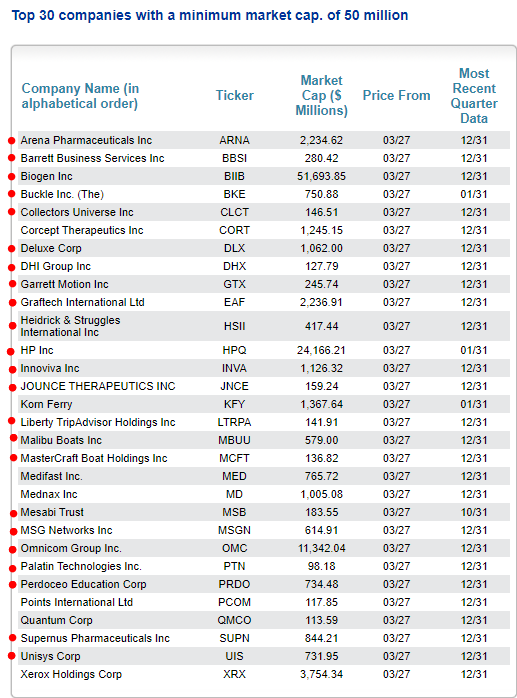I’m writing this from my Fort Worth command center at the end of March 2020, amid the Covid-19 Pandemic. I’m not going to include a performance update right now – it would be too depressing – but I will soon. Most of my updates are after I make a change in the portfolio, and the next one scheduled is in June, when AbbVie reaches its anniversary. I’ll try to post an update before then though.
First some reflections not strictly related to the Magic Formula. The economic crisis that surrounds Covid-19 is troubling and nobody knows how bad things will get in either the job market or the stock market. But this crisis reminds me that I started investing in individual stocks in 2009, years before I heard about The Little Book that Beats the Market. That was at the heart of the great recession when stocks plunged. Judging by my experience with this “Magic Formula” and the way I’m blindly following this strategy, I may have burned up all my credibility, but I have to stress, especially to younger readers who may have never have lived through this kind of roller coaster in the stock market: if you are lucky enough to be in good physical and financial shape this is an opportunity. I have friends who made some bad mistakes during the late aughts, like selling all stocks in their 401ks after the market dropped 30%, and staying in money markets for years out of fear. My portfolio initially lost a lot of value like anyone else’s, but I stayed invested through the whole thing, mainly in index funds, kept maxing out my 401k, and I started investing in individual stocks (but never “day trading”) at that time. The recovery from that recession is how I built a lot of wealth and it is sure to happen again with this crisis. If it doesn’t, then it means the end of American civilization as we know it and, in that case, nothing matters anyway. So my advice is: don’t jump off a roller coaster.
I’ve written a post on what I call the “stickiness” of Formula stocks, meaning that the same companies tend to stay on on the Magic Formula Investing screener, even for years. I’m sure readers are as curious as I as to how volatility in the markets affects the stocks in the MF screener. The stocks are chosen by taking companies’ quarterly data and comparing that to their current stock prices. So with this much turmoil in the markets I would expect the 30 stocks on the screener to really be in flux. I just checked the screener, however, and – take a look:

The red dots you see next to most of the 30 stocks identified by Mr. Greenblatt’s formula indicate stocks that I either currently have in my portfolio or have had in the three years I’ve been following the strategy. Yes, even with the market churning and boiling like a witch’s cauldron, 23 out of 30 of the stocks currently on the screener are ones I’ve already had in my portfolio!
When I see something like this, I sometimes suspect foul play. Like, maybe this screener is just a big joke and not actually even updated. Or maybe there are some technical glitches and honest mistakes that cause the site to fail to report the true stocks. Yet, nearly every time I spot-check one of the stocks it seems to have a very low P/E ratio. And the stocks do change somewhat; it’s just that stocks that were previously in the top 30 tend to return there.
Anyway, this is just an observation in the middle of a pandemic. Take care everyone, and stay isolated!
Leave a Reply